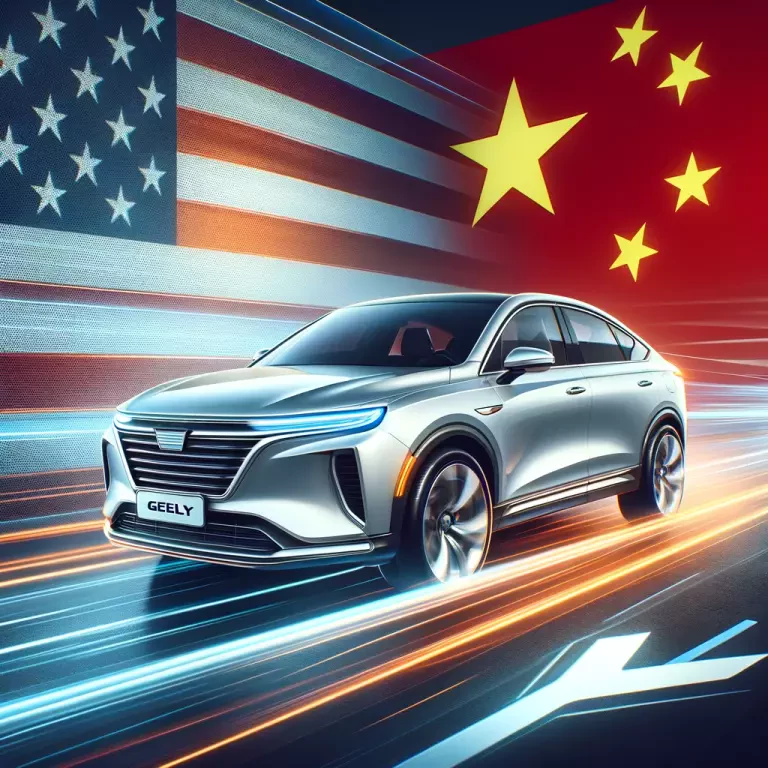Can You Import a Chinese Car?
As the global auto industry is a booming market, many American consumers are becoming intrigued by importing brand-new cars from the Chinese market.
Chinese car imports found on the online marketplace can offer a wide variety of Chinese car companies with unique features and a lower average cost compared to cars from American automakers.
However, importing from the Chinese auto market into the United States can be complicated.
You must comply with regulatory frameworks for vehicles on American roads import laws, and transport methods as the car may have specialized shipping requirements to get to the entry port safely.
Keep reading to discover what steps to take to make this complex process more simple.

Federal Regulations and Safety Standards for Foreign-made Vehicles in the United States
Foreign-made vehicles imported to the United States must comply with the same standards as American automobile manufacturers. To do so they must comply with regulatory requirements set by the Federal Motor Vehicle Safety Standards agency (FMVSS) and prove this with documentation on import. Following these regulations may be a complex process, but adhering to import laws will ensure you avoid additional expenses and delays in shipping your vehicle from the Chinese auto market.
Compliance with Federal Motor Vehicle Safety Standards (FMVSS)
The National Highway Traffic Safety Administration (NHTSA) requires all vehicles imported into the United States to comply with the FMVSS. These standards cover various safety aspects, including the vehicle's crashworthiness, crash avoidance measures, and post-crash survivability. If a vehicle from a Chinese car brand does not comply with the FMVSS regulations, it must be modified by a Registered Importer (RI), a business specifically approved by NHTSA to modify non-compliant vehicles.
Before a vehicle from the Chinese market can be imported, it must be reviewed for eligibility by NHTSA. This often involves determining whether the vehicle is substantially similar to a U.S.-certified model from the American market or if it can be modified to comply with FMVSS standards.
Import regulations documents
When importing a car from the Chinese market you must provide several key documents to ensure adherence to import regulations for Chinese auto imports. These documents key to the import laws and customs clearance include:
- The shipper’s or carrier’s original bill of lading.
- The bill of sale from Chinese car manufacturers.
- Foreign registration.
- EPA Form 3520-1 for emission standards declaration.
- DOT Form HS-7 for safety compliance declaration
You can find more details at the NHTSA website which should help in your process of customs clearance.
Emissions Standards
Whether you are importing an electric vehicle or a fuel vehicle from the Chinese auto market, the car must comply with environmental standards for the United States. When importing from foreign soil you must:

Comply with EPA Import Regulations:
Under the Clean Air Act, the U.S. Environmental Protection Agency (EPA) have regulatory requirements to ensure that all imported vehicles on the international trade market meet their strict emissions standards. If the vehicle you are importing does not meet these environmental standards, the car from the Chinese automaker must be modified to comply. There are several requirements which you need to meet to comply with import regulations:
- An EPA Form 3520-1 must be completed to declare the vehicle’s emissions compliance status.
- The car must display the Chinese car manufacturer’s label in the engine compartment that certifies it complies with U.S. emissions standards. If this label is not present, you will need additional proof of compliance, which may include detailed documentation and potential modifications conducted by a licensed professional.
Customs and Border Protection (CBP) Import Regulations
Customs regulations are one of the common challenges when importing a car from the Chinese market as it can be a complex process. You should always ensure you are complying with these customs regulations including fees or tariffs to be paid on imports and any regulations surrounding the customs clearance process. This will prevent you from incurring additional expenses during the transport of cars into the United States.
United States Vehicle Importation Process:
The customs clearance process requires any imported vehicle to be processed through CBP at the first port of entry. There are exceptions, for example, if other arrangements have been made to ship the vehicle to another port. The importation and customs clearance process means you have to submit all required documents and pay any import tariffs. To ensure a smooth importation process you should have all documentation prepared ahead of time.
United States Import Tariffs:
When importing a fuel or electric vehicle from the Chinese market, the CBP will determine the import duties/import tariffs required to be paid based on the purchase price or value of the vehicle. In line with customs regulations, importers should be prepared to pay these duties upon entry. The average price of these duties can vary, so you may wish to consult with CBP or a customs broker to ensure a cost-effective and efficient importation process.
Additional Considerations when Importing from Chinese Car Companies
1. Cost of Modifications and Compliance:
Although the average price of a car from a Chinese automaker may be lower than a car from an American car manufacturer, there could be additional costs involved. For example, the car must pass a compliance inspection before it can be driven on American roads. If it does not pass and the vehicle requires modifications to meet U.S. standards, this must be done by an RI, which can be costly and time-consuming. This process involves detailed inspections and potentially significant modifications to the vehicle’s safety and emissions systems which could negate any savings compared to buying a car on the American market.
2. Temporary Imports and Exemptions:
Looking to import a car for a short period of time? Non-residents, typically tourists or foreign nationals, who are planning on a short-term stay can temporarily import their vehicles from Chinese automakers without meeting all U.S. standards. This is typically limited to a stay of under one year, and the vehicle from the Chinese auto market must be exported back to a Chinese port at the end of this period.
3. Importing for Specific Purposes:
If you are importing a car from the Chinese auto market for a specific purpose there may be different regulations. For example, vehicles imported for a show or display, or for use in competitions or events. These vehicles have to comply with different regulations and may not need to comply with all FMVSS standards. However, there are strict conditions and limitations in place, which include restrictions on usage and required approvals from NHTSA.
Practical Considerations to Import a Chinese Car to the United States
When considering importing a car from the Chinese auto industry, there are some practicalities that you should be aware of before you start the process.
- Purpose of Importation: When importing a vehicle from the international trade, clearly defining the reasons for importing the vehicle is vital. The intended use must align with U.S. regulations, whether it is for personal use, display in a museum, or for a specific event, you must thoroughly document the purpose during the importation process.
- Insurance and Liability: Insurance for an imported car from the Chinese market can be complicated. You may need to get a specialized insurance policy to cover potential risks, including liability, damages during transit, and public safety concerns. Working with an insurance provider experienced in international vehicle imports is recommended.
- Safe transport with Shipping Companies: There are many auto transport services to choose from but you should ensure the transport of cars is done with a reliable and experienced shipping company that can ensure safe transport. This will minimize the risk of damages during transit and delays in shipping.
- Shipping method and shipping costs: You should consider the cost of container shipping or other shipping methods before you choose to import a Chinese vehicle. Shipping costs within the auto shipping industry can vary depending on the shipping method, the destination port, and the international vehicle shipping service you use.

Final thoughts on importing Chinese brands into the United States
Importing a Chinese brand of car into the United States is definitely feasible and could save you money compared to buying a car on the American market.
However, it can be a complex process and you will need to do some careful planning to make sure the car is compliant with federal regulations.
You should consider the safety standards, emissions standards, the import process, import tariffs, shipping method, and shipping costs before you embark on a journey to import a Chinese car for American roads.
For more detailed information on the transport of Chinese-brand cars into the United States, you can visit the following resources:
- U.S. Customs and Border Protection
- Environmental Protection Agency (EPA)
- National Highway Traffic Safety Administration (NHTSA)
Looking to ship a foreign-made vehicle into the United States or beyond? A-1 Auto Transport offers international vehicle shipping services via container shipping using optimal shipping routes.
With A-1 Auto Transport's international vehicle shipping services, you can be sure that your vehicle will arrive safely at the destination port. Get a free quote today and start planning your cost-effective shipping.
Comments
Post a Comment